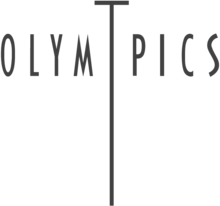The Theatre Olympics (Greek: Διεθνή Θεατρική Ολυμπιάδα) is a non-profit organisation that promotes theatrical exchange where dialogue between different theatremakers, irrespective of ideological, culture and language differences is encouraged. The primary output of the organisation is an international multicultural, multidisciplinary theatre festival (also called the Theatre Olympics), which aims to embrace different theatre traditions, respect diverse cultures and encourage intercultural networking among theatre artists around the world.[1] The Theatre Olympics are held infrequently and in various locations around the globe. Each festival is organised around a broad theme.
| Theatre Olympics | |
|---|---|
 | |
| Genre | Performance festival |
| Frequency | Variable |
| Location(s) | Various |
| Years active | 27 |
| Inaugurated | 1995 |
| Founders | Theodoros Terzopoulos |
Established in 1994 by an international committee led by Greek theatre director, Theodoros Terzopoulos, The Theatre Olympics originally had the subtitle "Crossing Millennia" to reflect the importance the organisation placed on connecting the past, present, and future of human cultural endeavours and to reflect the festival's aim to re-establish the importance of theatre in the cultural life of the twenty-first century. Despite the name, there are no competitive elements or prizes awarded at the Theatre Olympics.
The organisation's administrative headquarters are located in Athens, Greece (European office) and in Toga, Toyama, Japan (Asian office). The Theatre Olympics logo is used for every festival and was designed by the American theatre director, Robert Wilson.
The Committee

The first official meeting of the International Committee of Theatre Olympics took place on 18 June 1994 in Delphi, Greece, however discussions between the members had been ongoing since 1989.[2] The founding committee was a group of eight internationally renowned theatre directors: Theodoros Terzopoulos, Nuria Espert, Antunes Filho, Tony Harrison, Yuri Lyubimov, Heiner Müller, Tadashi Suzuki and Robert Wilson. The International Committee of Theatre Olympics meets once a year. New members can join after being recommended by one of the existing members and being approved by two-thirds of the committee.
Currently the International Committee of Theatre Olympics consists of fifteen members:
- Theodoros Terzopoulos (Greece) – chairman
- Giorgio Barberio Corsetti (Italy)
- Choi Chyrim (South Korea)
- Nuria Espert (Spain)
- Antunes Filho (Brazil)
- Jurgen Flimm (Germany)
- Valery Fokin (Russia)
- Jarosław Fret (Poland)
- Tony Harrison (United Kingdom)
- Georges Lavaudant (France)
- Liu Lubin (China)
- Wole Soyinka (Nigeria)
- Tadashi Suzuki (Japan)
- Ratan Thiyam (India)
- Robert Wilson (United States)
Former founding members of the Theatre Olympics:
- Yuri Lyubimov (1995–2014) (Russia)
- Heiner Müller (1995–1995) (Germany)[3]
Hosting Countries
The Theatre Olympics are held in a different country each edition. So far there have been nine festivals. The festival allows the host country to reflect their own theatre heritage and the event is reinvented each time by a new artistic director – who is usually an International Committee member of the Theatre Olympics. The festival's national organising committee usually consists of prominent representatives of the country's cultural life.
The hosting cities have been:[4]
| City / Country | Year | Theme | Artistic Director/s | Number of Productions | Number of Countries | Additional Information |
|---|---|---|---|---|---|---|
 Delphi, Greece Delphi, Greece | 1995 | Tragedy | Theodoros Terzopoulos | 9 | 7 | The inaugural edition was focused around Greek tragedy. |
 Shizuoka, Japan Shizuoka, Japan | 1999 | Creating Hope | Tadashi Suzuki | 42 | 20 | For the second edition, the organisers created an art village in the Japanese industrial city, Shizuoka, which was designed by the famous architect, Arata Isozaki. The Shizuoka Performing Arts Center (SPAC) was opened to mark the occasion.[5][6] |
 Moscow, Russia Moscow, Russia | 2001 | Theatre for the People | Yuri Lyubimov | 97 | 32 | The third edition was presented alongside the Chekhov International Theatre Festival. The festival incorporated a large-scale outdoor programme, where 40 theatres from 15 countries were presented. |
 Istanbul, Turkey Istanbul, Turkey | 2006 | Beyond Borders | Theodoros Terzopoulos and Dikmen Gürün | 38 | 13 | The fourth edition was a joint-festival with the fifteenth International Istanbul Theatre Festival (IITF). |
 Seoul, South Korea Seoul, South Korea | 2010 | Sarang: Love and Humanity | Choi Chyrim | 48 | 13 | The fifth edition placed an emphasis upon theatre's role in and contribution to globalisation. The festival also coincided with Seoul rebranding itself as “the city of culture and the arts". |
 Beijing, China Beijing, China | 2014 | Dream | Liu Lubin | 46 | 22 | The sixth edition's theme "Dream", was divided into three sub-themes: "In Memory of the Classics," "Vitality and Creativity" and "Audiovisual Feast."[7] |
 Wrocław, Poland Wrocław, Poland | 2016 | The World as a Place of Truth | Jarosław Fret | 86 | 14 | The seventh edition was organised by Poland's Grotowski Institute. The festival's theme is a paraphrase of the title of a speech that Jerzy Grotowski gave in 1976.[8] The festival also coincided with Wrocław being the 2016 European Capital of Culture. |
 Delhi, India Delhi, India | 2018 | The Flag of Friendship | Waman Kendre | 465 | 35 | The eighth edition was held in 17 different cities around India, with the opening ceremony in New Delhi and closing ceremony in Mumbai.[9] |
  Saint Petersburg, Russia and Toyama, Japan Saint Petersburg, Russia and Toyama, Japan | 2019 | Creating Bridges | Valery Fokin and Tadashi Suzuki | 50 | 21 | The ninth edition was the first time the Theatre Olympics was hosted in two countries.[10][11] |
 Budapest, Hungary Budapest, Hungary | 2023 | 'O Man, strive on, strive on, have faith; and trust' | Vidnyánszky Attila | 750 | 58 [12] | The tenth edition is focused around autonomy, liberty and helping the access to culture. [13] |
References
Further reading
- Kim, Jae Kyoung (2016). International Theatre Olympics: The Artistic and Intercultural Power of Olympism. London: Palgrave. ISBN 978-981-10-9655-6.